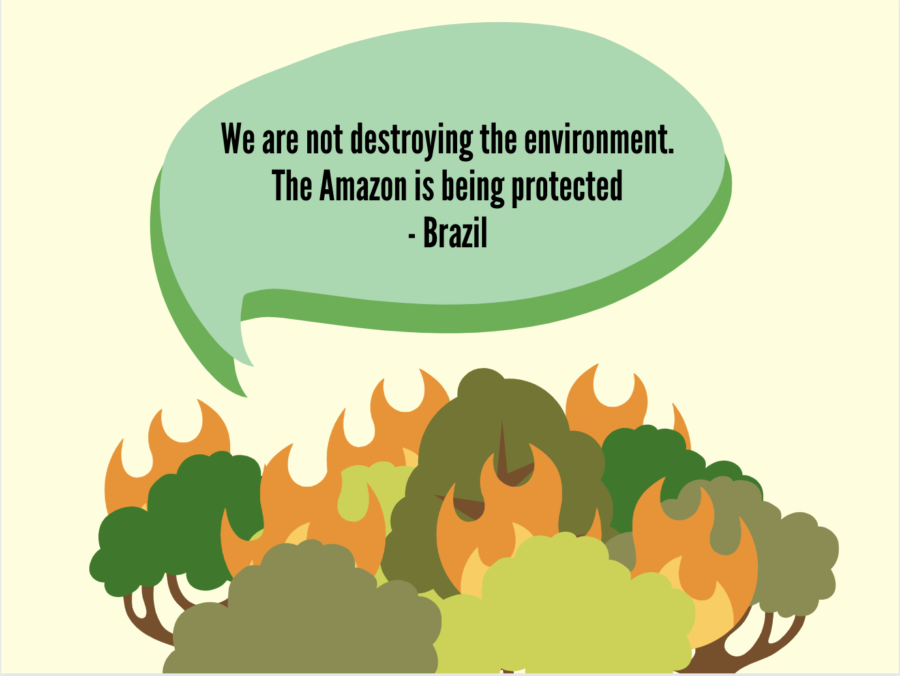Fighting Fire with Environmental Concern: Brazil’s Responsibility to the Amazon Rainforest
When Jair Bolsonaro was elected Brazil’s president in late 2018, his appointment ushered in a new age of relaxed deforestation laws. Over the next few months, Brazillian farmers took advantage, burning the Amazon rainforest to clear it for future use, according to CNN. Unfortunately, the flames grew uncontrolled, and as they continue to wreak havoc, the Brazilian government watches on, making little attempt to promote environmental protection.
Fire activity in the Amazon rainforest is commonplace, but in prior years, the fires were largely caused by droughts. That is not the case for 2019. Bolsonaro has always been a vocal proponent for the expansion of Brazil’s economy; however, in his eyes, the environment is standing in the way of industry, according to the New York Times.
“[Brazil] is known for not taking care of the environment in ways that they probably should or need to,” AP Environmental Science teacher Courtney Moder said. “It is possible that there is a butting of heads between the government and the people that want to help out.”
Since Bolsonaro’s election, he has already attempted to undermine FUNAI, the agency responsible for protecting Brazil’s indigenous people, and IBAMA, the agency that enforces environmental policies. Nevertheless, with the emergence of the Amazon fire crisis, the nation did take steps forward, implementing a 60-day ban against setting fires on Aug. 29 and signing a forest protection pact on Sep. 6. However, these actions occurred too late to allow for many benefits.
The government has a responsibility to the environment, and sadly, Brazil failed to take that responsibility seriously. The country was negligent in every way. Today, there is not much left to do but put all efforts into quelling the flames, but for the future, the Brazilian government should prioritize the Amazon rainforest.
Environmental agencies should not have their funds slashed, the president should not publicly disapprove of conservational efforts, and preventative measures, like deforestation laws, should not be ignored in favor of economic gain, especially since the Amazon generates about $8.2 billion per year, according to a study published by the journal Nature.
If Brazil hopes to be preserve what is left and keep their global reputation intact, they must stop treating the Amazon as an optional responsibility, but rather as a diverse biome with worth.
Your donation will support the student journalists of Portola High School. Your contribution will allow us to purchase equipment and cover our annual website hosting costs.

Charlotte Cao is the Features Editor for her third and, unfortunately, final year on the Pilot. Whether it be through the co-writing of stories or during...




